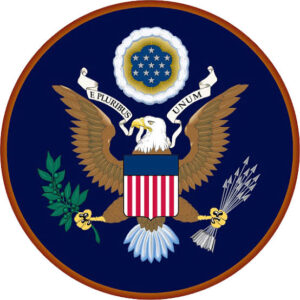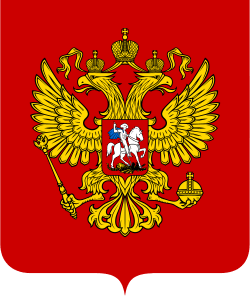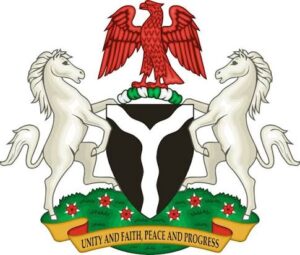Around the world, modern nations treat security architecture as the backbone of national survival. The selection of National Security Advisers, Defence Ministers, intelligence chiefs, and Service Chiefs is never treated as a political reward. It is a strategic decision that can determine whether citizens live in peace or perish under avoidable threats.
In most stable and secure societies, these appointments go to the most qualified minds—career military officers, intelligence professionals, scholars of strategy, and individuals with decades of operational experience. Nigeria, however, continues to experiment with political compensation and sentimental appointments, with predictable consequences.

This report examines the global standards of security leadership, outlines the expected roles of key security institutions, and compares Nigeria’s practices with those of nations that take national defence with utmost seriousness.
Understanding the Pillars of National Security Leadership
■ National Security Adviser (NSA)

Globally, the NSA is the President’s central strategist—responsible for coordinating military, intelligence, diplomatic, and internal security efforts. The role demands deep knowledge of defence policy, international relations, counter-terrorism, and crisis management.
The NSA is the brain of the nation’s security system:
Synthesizes intelligence reports
Advises on threats and vulnerabilities
Leads inter-agency coordination
Ensures strategic coherence across the military and intelligence community

Only nations unconcerned with security appoint NSAs without strategic or defence credentials.
■ Defence Minister / Secretary of Defence
The Defence Minister is the civilian authority that supervises the armed forces. This position is never ceremonial.
Globally, defence ministers are:
Retired generals
Former intelligence officials
Security scholars
Experienced diplomats
Defence policy experts

Their role includes:
Overseeing the armed forces
Approving operations
Managing defence budgets
Modernizing military capability
Coordinating with Service Chiefs
This is not a job for politicians seeking rehabilitation after years of political appointment in the State Level and need to work in the Federal level with a foundation in teaching at a secondary school.
■ Intelligence Agencies & Homeland Security
Intelligence chiefs operate quietly but decisively. Their responsibilities include:

Counter-terrorism
Counter-espionage
Covert operations
Cybersecurity
Strategic surveillance
Protection of national secrets
Directors of intelligence must be individuals who spent their lives in security and intelligence work, not political allies rewarded for loyalty.
■ Service Chiefs (Army, Navy, Air Force, Police, etc.)
Service Chiefs are operational commanders responsible for the security of the nation’s territory. They must:
Plan and execute operations
Lead troops
Interact with intelligence bodies
Maintain discipline
Drive modernization
These roles demand decades of military experience, warfighting expertise, and strategic leadership.

How Competent Nations Appoint Security Leaders
United States
America does not gamble with security.
Defence Secretaries: retired generals, career strategists, intelligence experts.
National Security Advisers: scholars, military strategists, senior diplomats.
A failed local administrator cannot suddenly become the custodian of America’s defence.
Israel
A country under constant threat cannot afford careless appointments.
Defence Ministers: former IDF chiefs and decorated generals.
Mossad/Shin Bet: leaders who have spent decades in counter-terrorism and espionage.

One Israeli life lost triggers immediate strategic response—not press statements.
Russia
Regardless of politics, Russia’s security structure is built on competence.
Defence and intelligence chiefs are products of KGB/FSB/GRU or elite military institutions.
No civilian with a history of administrative failure is elevated into the security space.
France
Defence and intelligence leadership always comes from backgrounds in military, diplomacy, or security.
No party loyalist with no defence experience gets appointed simply to settle political debts.

United Kingdom
The UK’s Defence Secretary works with MI5, MI6, and GCHQ—each led by veterans of security and intelligence work.
Competence is non-negotiable, even in a political system.
Turkey
Turkey’s success in precision counter-insurgency comes from relying on:
Former generals
Intelligence veterans
Police commissioners with experience in counter-terrorism
Egypt
Its security architecture is almost entirely dominated by former military and intel professionals.
Whatever one’s opinion about politics there, the seriousness with which they approach national security cannot be questioned.

Nigeria: When Politics Overtakes Security
Nigeria’s security leadership—too often—does not follow global best practices.
Instead of merit, the system frequently rewards failure:
The Nigerian Formula:
■ A governor completes his tenure but fails to win a seat in the Senate → gets rewarded as Minister in the Defence Sector.
■ A political loyalist who is unsuccessful with victory in elections and party duties → elevated to lead the Defence Sector with no qualifications for eligibility in accordance with global standards.
■ Terrorists who kill citizens → shortlisted for rehabilitation instead of justice.
This logic cannot produce safety.
Nigeria faces one of the most complex security environments in the world:

Insurgency
Banditry
Separatist violence
Kidnapping
Oil theft
Cyber threats
Internal sabotage
Yet the country still treats security appointments as political bargaining chips.
No successful nation behaves this way.
Conclusion: Security Is Not a Reward System
For Nigeria to build a defence architecture comparable to stable nations, it must:
Appoint competent, experienced security professionals
Separate politics from national security
Hold security leaders accountable
Prioritize merit and track record
National security is too sensitive for guesswork, favoritism, or political compensation.
A nation that fails to protect its citizens cannot claim sovereignty.
Nigeria must realign its security architecture with global standards—or continue paying the price in lives, territory, and instability.
National Coalition For National Security [NCNS]
A Nation Seeking a Global Seat Must First Put Its Own House in Order

Nigeria’s ambition to secure a permanent seat on the United Nations Security Council is commendable, but the world is watching—and the world is not fooled. No country earns a place at the highest table of global security while running a domestic security architecture built on improvisation, political compensation, and unqualified appointees.
A nation cannot lobby to shape global security decisions when those overseeing its own military and intelligence institutions have never operated within the security industry, never studied its systems, and never demonstrated competence in confronting internal threats. Great powers measure seriousness by structure, not slogans.
If Nigeria truly expects to be taken seriously as a global security stakeholder, then it must overhaul its internal framework. That means appointing seasoned professionals—not political adventurers—to drive national defence strategy, intelligence coordination, and military oversight.

The world will not entrust Nigeria with a voice on peacekeeping, counterterrorism, and international stability when it struggles to hold its own ground against insurgents, bandits, and internal sabotage.
A Security Council seat is not awarded by sentiment; it is earned through credibility, capability, and demonstrated commitment to protecting lives. Nigeria’s aspiration is noble, but without a profound adjustment to its security leadership and architecture, it risks looking less like a rising power and more like a nation campaigning for a position it has not prepared to occupy.
If Nigeria wants global respect, it must start with internal reform. Only then can the world see not just ambition—but readiness.
Headlinenews.news Special Investigative Report.




